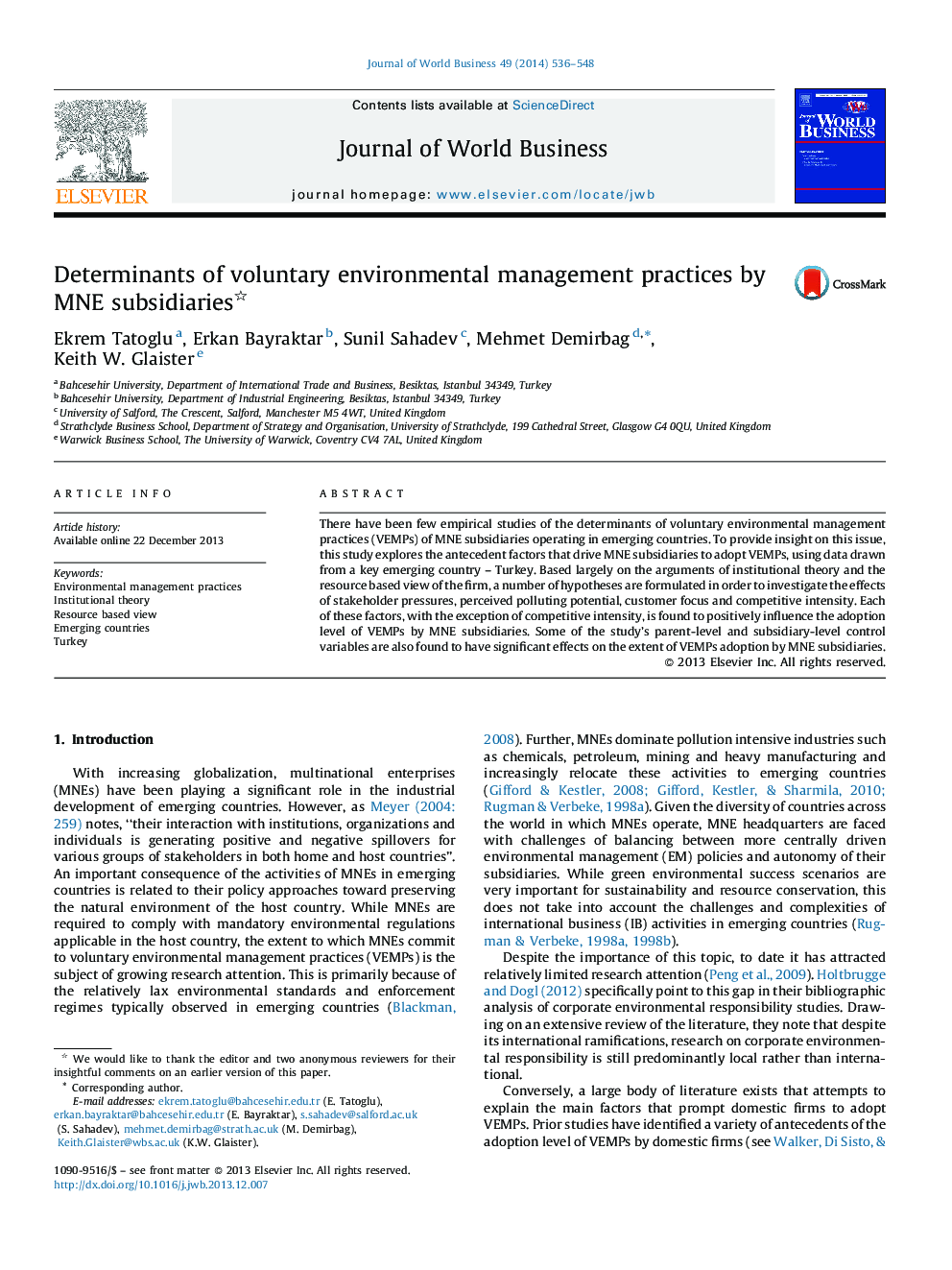| Article ID | Journal | Published Year | Pages | File Type |
|---|---|---|---|---|
| 1002125 | Journal of World Business | 2014 | 13 Pages |
There have been few empirical studies of the determinants of voluntary environmental management practices (VEMPs) of MNE subsidiaries operating in emerging countries. To provide insight on this issue, this study explores the antecedent factors that drive MNE subsidiaries to adopt VEMPs, using data drawn from a key emerging country – Turkey. Based largely on the arguments of institutional theory and the resource based view of the firm, a number of hypotheses are formulated in order to investigate the effects of stakeholder pressures, perceived polluting potential, customer focus and competitive intensity. Each of these factors, with the exception of competitive intensity, is found to positively influence the adoption level of VEMPs by MNE subsidiaries. Some of the study's parent-level and subsidiary-level control variables are also found to have significant effects on the extent of VEMPs adoption by MNE subsidiaries.
